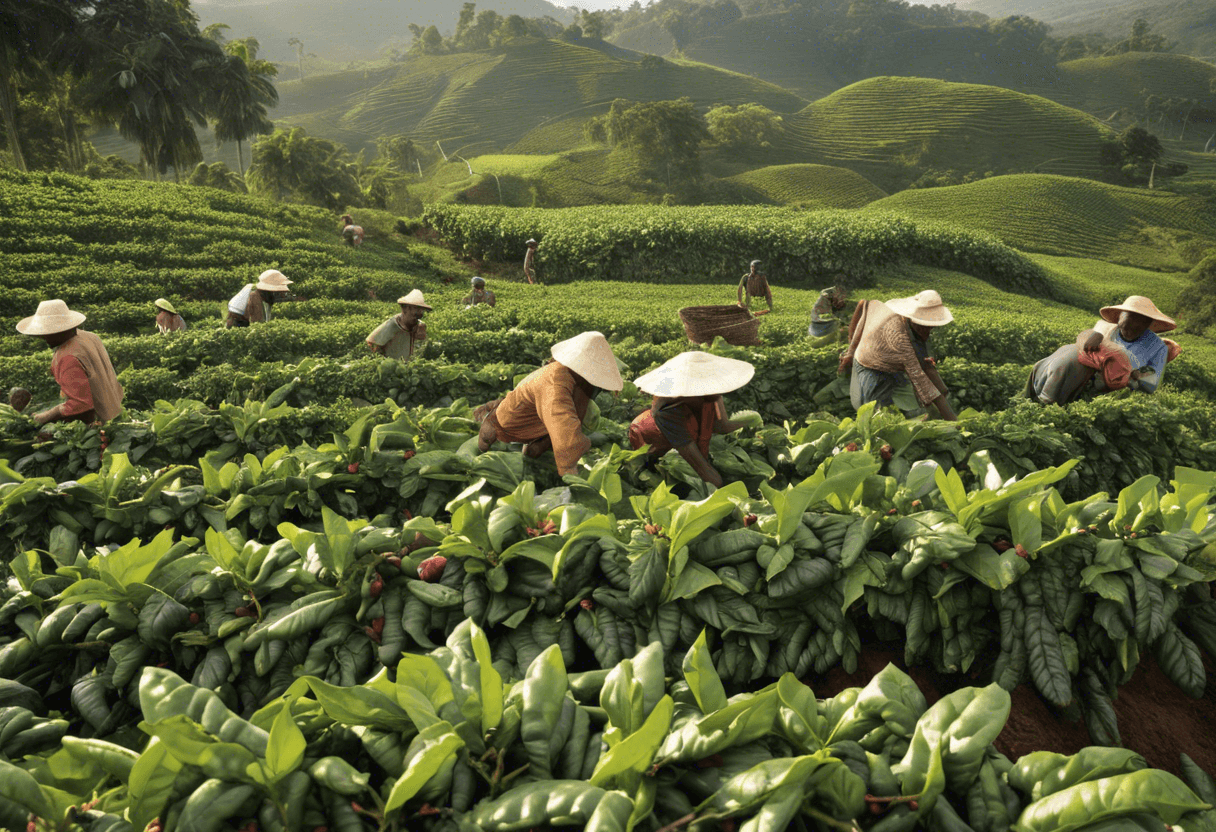The future of coffee farming



The Future of Coffee Farming: Challenges, Innovations, and Opportunities
Coffee, the beloved beverage of many, is an intricate part of daily life for millions of people around the world. Behind every cup of coffee lies a complex journey, from the farms where it's grown to the cups where it's savored. As the coffee industry continues to evolve, coffee farming faces numerous challenges that threaten the very existance of this beloved crop. In this article, we'll delve into the future of coffee farming, exploring the challenges, innovations, and opportunities that will shape the industry in the years to come.
The Challenges Facing Coffee Farming
Coffee farming is an arduous task, and farmers face a multitude of challenges that affect the quality, yield, and sustainability of their crops. One of the most significant challenges is climate change, which is altering the ideal climate conditions for coffee production. Rising temperatures, changing precipitation patterns, and increased frequency of extreme weather events are all taking a toll on coffee crops. In fact, a study by the International Coffee Organization estimates that coffee production could decline by 50% by 2050 due to climate change.
Another challenge facing coffee farmers is the issue of pests and diseases. Coffee leaf rust, a fungal disease, has devastated coffee crops in Latin America, resulting in significant losses for farmers and the industry as a whole. The disease has also led to an increased reliance on pesticides and fungicides, which can harm the environment and human health.
Coffee farmers also struggle with low prices, which make it difficult for them to cover production costs and earn a decent living. The coffee price crisis, which began in the 1990s, has had a devastating impact on small-scale farmers, who are often forced to sell their beans at prices lower than the cost of production.
Innovations in Coffee Farming
Despite the challenges, coffee farming is undergoing a transformation, driven by innovations and new technologies. One of the most promising developments is the use of precision agriculture, which involves the use of advanced technology, such as drones, satellite imaging, and sensors, to monitor and manage coffee crops. This approach allows farmers to optimize crop yields, reduce water and fertilizer usage, and detect pests and diseases early, reducing the need for chemical treatments.
Another innovation is the adoption of sustainable and regenerative farming practices. Regenerative agriculture, which focuses on improving soil health, biodiversity, and ecosystem services, is gaining popularity among coffee farmers. This approach not only improves the environmental sustainability of coffee production but also enhances the quality and flavor of the coffee.
Coffee farms are also embracing renewable energy sources, such as solar and biogas, to power their operations. This shift towards renewable energy reduces the carbon footprint of coffee production and helps farmers reduce their energy costs.
The Rise of Specialty Coffee
The specialty coffee movement has been gaining momentum in recent years, and it's having a significant impact on coffee farming. Specialty coffee, which focuses on high-quality, unique, and distinctive coffee beans, is driving demand for high-quality coffee cherries. This has led to an increase in prices paid to farmers, providing them with a better income and incentivizing them to focus on quality rather than quantity.
Specialty coffee is also encouraging farmers to experiment with new processing methods, such as anaerobic fermentation and honey processing, which can enhance the flavor and aroma of the coffee. This focus on quality and innovation is driving the development of new coffee varieties, which are better suited to local conditions and more resilient to climate change.
Direct Trade and Farmer-Centric Models
One of the most promising trends in coffee farming is the rise of direct trade and farmer-centric models. Direct trade, which involves coffee roasters purchasing coffee beans directly from farmers, is helping to reduce the number of intermediaries in the supply chain and increase the prices paid to farmers.
Farmer-centric models, such as cooperatives and producer organizations, are also gaining popularity. These models empower farmers to take control of their own production, processing, and marketing, allowing them to retain more of the value created in the supply chain.
Farmer-centric models also provide farmers with access to training, technical assistance, and credit, helping them to improve their production skills and invest in their farms. This approach is critical to ensuring the long-term sustainability of coffee farming, as it allows farmers to build resilience and adapt to changing market conditions.
The Future of Coffee Farming
As the coffee industry continues to evolve, coffee farming will face numerous challenges and opportunities. To ensure the long-term sustainability of coffee production, the industry must focus on improving the livelihoods of coffee farmers, reducing the environmental impact of coffee production, and enhancing the quality and flavor of coffee.
This will require a collaborative effort from all stakeholders in the coffee industry, from farmers and cooperatives to roasters and retailers. By working together, we can create a more sustainable and equitable coffee industry, where farmers are able to earn a decent living, and high-quality coffee is available to consumers around the world.
The future of coffee farming is uncertain, but one thing is clear: the industry must adapt to changing market conditions, climate change, and shifting consumer preferences. By embracing innovations, sustainable practices, and farmer-centric models, coffee farming can not only survive but thrive in the years to come.
As consumers, we have a critical role to play in shaping the future of coffee farming. By choosing to purchase high-quality, sustainably sourced coffee, we can incentivize farmers to adopt sustainable practices and invest in their farms. We can also support coffee roasters and retailers that prioritize transparency, fairness, and sustainability in their supply chains.
The future of coffee farming is in our hands, and it's up to us to ensure that this beloved crop continues to thrive for generations to come.